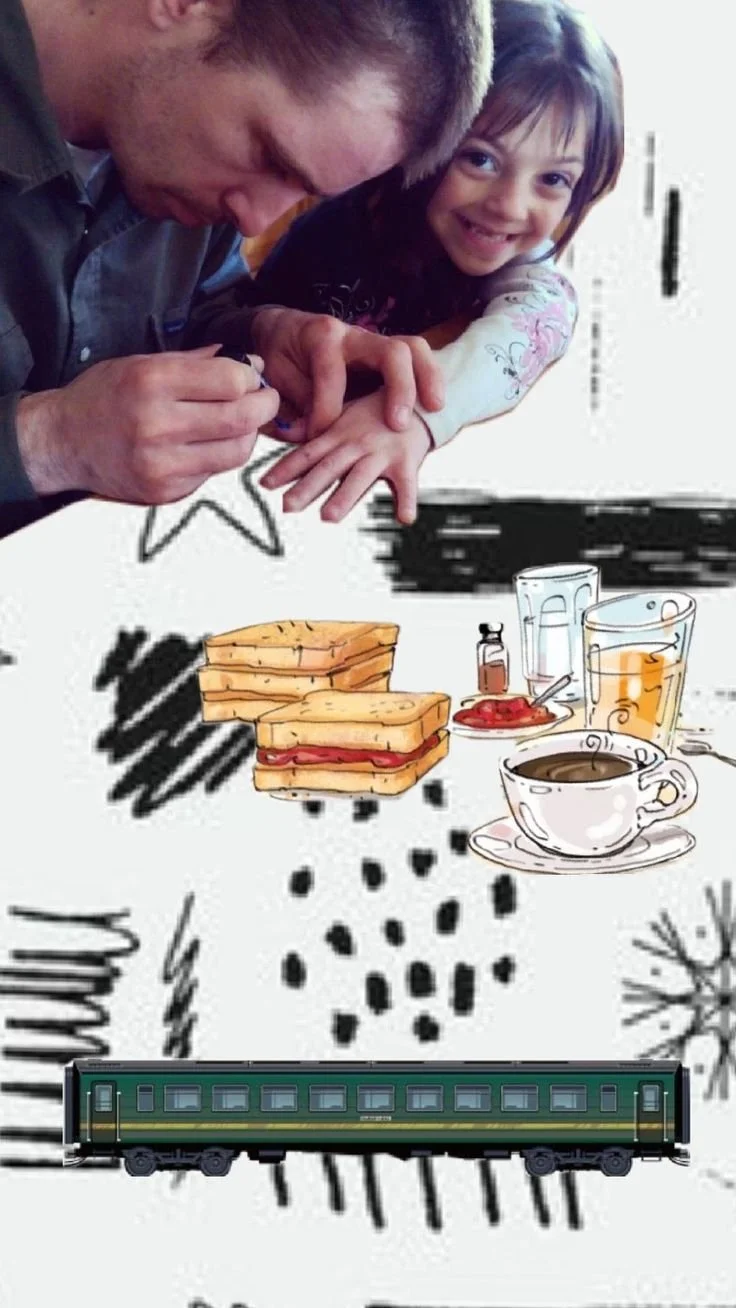reversing acts of silencing for bereaved adults with learning disabilities
In this article, Thalia reflects on her experience advocating for adult clients with learning disabilities, who brought their experiences of bereavement to their sessions.
In a dramatherapy session, the client may be invited to embody a fictionalised retelling of experiences of loss, betrayal, or abuse, or temporarily project the narrative onto a character or object. This may be more bearable than confronting the facts of what has happened directly, since the subject of exploration is “just a story”.
Using storytelling in this way, with the therapist as a witness, can enable unconscious processing. Creative expression and dramatic play regulate the nervous system, whether through the free exploration of ideas and values, or the sensory experience of drawing, writing, movement, or using the voice and music.
There is a strong evidence base for dramatherapy’s applications with clients with learning disabilities. Many people with learning disabilities struggle with verbal communication, for a diverse range of reasons that include aphasia, selective mutism connected to sensory overload, deafness, or being entirely nonverbal. Where there is a lack of capacity or desire to communicate verbally, dramatherapy can act as a rare space where there can be a freedom of expression without pressure to speak. Beyond incapacity, we know that the voices of those with learning disabilities are, all too often, silenced by others.
Acts of silencing are committed with all kinds of motives: well-meaning carers who don’t have the time or energy to listen, as well as the malicious or negligent. Those who are fatigued are prone to losing their sense of good faith, and see emotional expression that they feel unresourced to manage as burdensome, or even intended to cause annoyance. Having an ally who is committed to understanding what you want or need to say, and has no biases or preferences about what you express, is a necessary component of a healthy social life. Many of us are able to have private conversations with someone who earnestly seeks to understand us; for those who are in full-time care this can be missing.
For 6 months, I held a student placement as a dramatherapist, working with adults with learning disabilities. My work was situated within a multidisciplinary social work team, who supported me by referring clients, integrating my practice into the timetable for those who were referred, and providing me with a therapy space. The role of the social work team was often described to me as “keeping everyone happy”. Care workers were incredibly competent and skilled, but the task, as they described it, is distinct from the psychodynamic approach, where there is time and space for unhappiness to be permitted, and explored with curiosity and compassion.
My clients were very loved people for whom staff and carers were working hard. Nonetheless, the inequality of opportunity they had encountered throughout their lives cannot be overstated. The centre from which I worked enabled them to engage in art- and music-based activities if they chose, but so often during or after facilitating a simple creative process, I heard “I didn’t know I could do this”. For a client who could not read or write but wanted to tell her own story, the simple act of dictation enabled self-expression. Despite its simplicity, the family of the client expressed how moving they found this act - showing not just how empowering (and powerful) it was for this client’s voice to be heard, but also how much need there was for a creative-expressive intervention.
When I asked my colleagues about what was in place for those facing grief, they shared, with some sadness, that bereavement support was relegated to families, who often just “hoped they [the disabled adult] would forget quickly”. Considering the intersection of class struggle locally with the expenses of caring for a disabled family member, it is easy to imagine how a family would lack the time or headspace to both work and remain consistent in providing emotional care that, presumably, would concern a bereavement with which they were struggling too.
Those who I met with for dramatherapy had not forgotten their bereavements, but had understood that others wished for them to forget, resulting in confusion, fragmentation, shame, and anger. Everyone encounters bereavement, and the lack of resourcing for adults with learning disabilities to process their own is a specific mental healthcare crisis.
As adults in full-time care grow older, their family links to care (if they have them) will expire, and they will find themselves bereft and being looked after by strangers. Again, when engaging with clients in conversations about their grief, I heard “I didn’t know I could do this”. Apologies came my way for “being negative” or “not looking on the bright side”. When the trauma of grief is unprocessed and remains internalised in the body, the bright side itself is just a story.
Despite the obvious inequality of such a massive unmet healthcare need, there is currently no funded access to arts-based psychological therapies for adults with a learning disability in the area of Scotland that hosted my work. For placements like mine, the practitioner is unpaid and self-resourced, and limited to twenty weeks within the organisation. Twenty weeks, with the best intentions and the best luck possible, can work out (as in my case) to around 16 sessions with a client. This is if, and only if, the host organisation is extremely efficient in producing referrals.
While effective in the short term for a few hand-picked clients, this is not a sustainable solution to a mental healthcare crisis, not least because a student practitioner is not yet a mental health professional. Enabling adults with learning disabilities to process lifelong but everyday traumas such as bereavement, as well as the almost universal experience in this client group of inequality-related injustice, in genuinely accessible ways, is vital.
Creative expression through arts-based psychotherapies demands nothing of the client but to play, to connect, and, if they are ready, to have their experiences heard.
The enactment of justice in healthcare for adults with learning disabilities must demand both opportunity and the good faith of carers. However, it cannot start with the question of who is being taken seriously when they tell their story. The first question to be addressed is more fundamental: who is being enabled to tell their story in the first place?
Reflective artwork on the theme of silencing.
“Keeping everyone happy”
Images gathered after a session with a client, exploring bereavement.
Images gathered after a session with a client, exploring bereavement.




